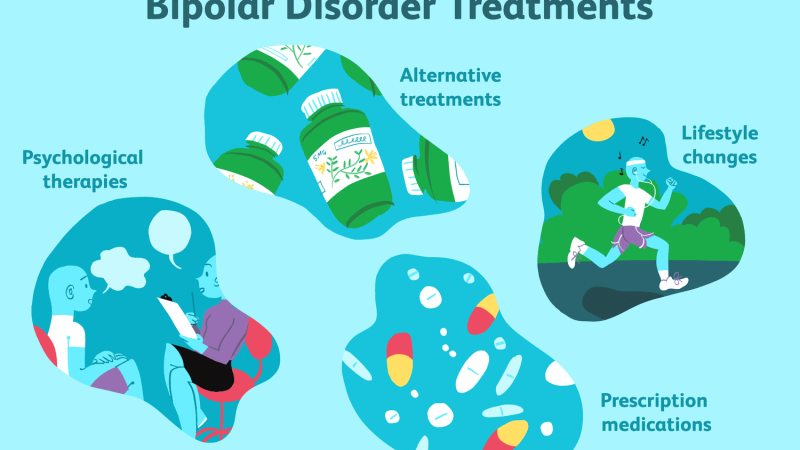You ever wonder what keeps your favorite snacks safe to eat? Or why that bottle of juice tastes just right every time? It’s not just luck—it’s the behind-the-scenes hustle of folks in food processing world, making sure every step, from mixing ingredients to sealing packages, is spotless and safe. That’s where Good Manufacturing Practices (GMP) training swoops in like a kitchen superhero for food and beverage companies. It’s not just a fancy term; it’s the heartbeat of food safety and quality. Let’s unpack why GMP training is a must-have for staff handling food processing, packaging, and handling—and why skipping it isn’t an option.
What’s the Deal with GMP Anyway?
Good Manufacturing Practices—GMP for short—are like the golden rules for keeping food and beverage production clean, safe, and consistent. Think of it as a playbook for trust. It covers everything: from personal hygiene (yes, washing hands!) to keeping equipment squeaky clean and making sure products are free from contamination. For food and beverage companies, GMP isn’t just nice to have—it’s the foundation for delivering safe, high-quality products that customers can rely on.
Why does this matter? Because nobody wants to bite into a cookie and find something that shouldn’t be there. Or worse, get sick from a product that wasn’t handled right. GMP training teaches staff how to spot risks, follow protocols, and keep the production line humming safely. It’s not about memorizing a rulebook; it’s about building habits that protect both the product and the people eating it.
The Emotional Weight of Getting It Right
Here’s the thing—food isn’t just fuel; it’s personal. It’s the sandwich you pack for your kid’s lunch, the coffee you sip to kickstart your day, or the ice cream you share with friends on a summer night. When staff are trained in GMP, they’re not just doing a job—they’re safeguarding those moments. There’s a quiet pride in knowing you’re part of something bigger, something that keeps people safe and happy. Doesn’t that hit home?
Who Needs GMP Training? Spoiler: Everyone on the Line
If you’re working in food processing, handling, or packaging, GMP training isn’t optional—it’s your bread and butter. From the folks mixing ingredients to those packing boxes, everyone plays a role in keeping things safe. Even the person cleaning the equipment or sweeping the floor has a part to play. Contamination doesn’t discriminate; it can sneak in anywhere if you’re not paying attention.
- Production staff: They’re hands-on with ingredients, so they need to know how to avoid cross-contamination and keep workstations sterile.
- Packaging teams: They ensure products are sealed properly to prevent spoilage or tampering.
- Maintenance crews: They keep machines running smoothly and free of grime that could taint the product.
- Warehouse workers: They store goods in conditions that preserve quality and safety.
You know what’s wild? Even a small slip—like forgetting to wash your hands or leaving a machine uncleaned—can ripple through the whole process. GMP training hammers home the importance of every single step, no matter how small it seems.
A Quick Tangent: The Human Factor
Let’s be real—nobody’s perfect. We’ve all had days where we’re rushing or distracted. That’s why GMP training isn’t just about rules; it’s about mindset. It teaches you to slow down, double-check, and take pride in the details. It’s like learning to cook for someone you love—you don’t cut corners because you care about the outcome. That’s the kind of vibe GMP brings to the workplace.
Why Hygiene Is the Unsung Hero of GMP
Hygiene isn’t glamorous, but it’s the backbone of GMP. Picture this: a food processing plant where workers don’t wash their hands, or equipment is caked with yesterday’s batter. Gross, right? That’s a recipe for contamination, and it’s why GMP training spends so much time on personal and environmental hygiene.
Staff learn practical stuff like:
- Washing hands thoroughly (and not just a quick rinse under the tap).
- Wearing hairnets, gloves, and clean uniforms to keep germs at bay.
- Cleaning and sanitizing equipment between batches to avoid cross-contamination.
- Keeping work areas free of clutter that could harbor bacteria.
It’s not rocket science, but it’s easy to slack off if you’re not trained to see why it matters. GMP training flips that switch, turning hygiene into second nature. And when it’s done right, it’s like an invisible shield protecting every product that leaves the facility.
A Seasonal Spin: Summer’s Extra Challenges
Here’s a little heads-up—hygiene gets trickier in summer. Warmer temps mean bacteria can multiply faster, especially in humid environments like food plants. GMP training often includes seasonal tips, like extra vigilance with cooling systems or more frequent equipment checks. It’s those little tweaks that keep quality consistent, even when the weather’s throwing curveballs.
Avoiding Contamination: The GMP Way
Contamination is the boogeyman of food production. It can come from anywhere—dirty hands, a faulty machine, or even pests sneaking into the facility. GMP training is like a crash course in playing defense. Staff learn to spot risks and stop them before they become problems.
For example:
- Cross-contamination: Mixing raw and cooked ingredients can spell trouble. GMP teaches proper separation techniques.
- Environmental hazards: Dust, mold, or pests can wreak havoc. Training covers how to keep facilities spotless and pest-free.
- Equipment issues: A poorly maintained machine can introduce contaminants. GMP emphasizes regular cleaning and checks.
It’s not just about avoiding disasters; it’s about building trust. Customers expect safe food, and GMP training ensures you’re not gambling with their health.
A Real-World Metaphor
Think of GMP like a symphony. Every worker is a musician, and every task—cleaning, mixing, packaging—is a note. If one person’s off-key, the whole performance suffers. GMP training gets everyone playing in harmony, creating a product that’s safe, consistent, and worthy of the brand.
Quality Isn’t Just a Buzzword
In the food and beverage world, quality isn’t negotiable. Customers notice when a product tastes off or looks weird, and they’re not shy about sharing their gripes online. GMP training helps staff understand that quality starts with them. It’s not just about following steps; it’s about owning the process.
Trained workers know how to:
- Check ingredients for freshness and proper storage.
- Monitor production conditions like temperature and humidity.
- Spot defects early to prevent faulty products from reaching shelves.
It’s empowering, really. When you know you’re contributing to a top-notch product, it changes how you show up to work. You’re not just clocking in; you’re part of a team delivering something people love.
The Ripple Effect of Quality
Here’s a thought: quality doesn’t just affect the product—it shapes the company’s reputation. A single bad batch can tank customer trust, while consistent quality builds loyalty. GMP training gives staff the tools to tip the scales in the right direction. Isn’t that something worth investing in?
Making GMP Training Stick
Let’s be honest—training can feel like a chore if it’s dull or disconnected from the job. That’s why effective GMP programs are hands-on and relevant. They use real-world scenarios, like how to handle a spill or what to do if a machine jams. Role-playing, videos, and quizzes keep things engaging, while regular refreshers ensure the lessons stick.
Some companies even gamify it, with leaderboards or rewards for nailing GMP protocols. It’s a small tweak that makes a big difference, especially for younger workers who thrive on a bit of friendly competition.
A Nod to Teamwork
One last thing—GMP training isn’t just about individual skills; it’s about teamwork. When everyone’s on the same page, the whole operation runs smoother. It’s like a well-oiled machine, where every part works together to create something amazing. That’s the magic of GMP.
Wrapping It Up: Why GMP Training Is Worth It
At the end of the day, GMP training isn’t just about checking boxes—it’s about protecting people, building trust, and delivering products you can be proud of. For food and beverage companies, it’s the difference between a loyal customer and a PR nightmare. By equipping staff with the know-how to maintain hygiene, prevent contamination, and ensure quality, GMP training sets the stage for success.
So, if you’re in food processing, handling, or packaging, embrace GMP training. It’s not just a job requirement; it’s a chance to make a difference. And who knows? Maybe the next time someone enjoys their favorite snack, they’ll have you to thank.






